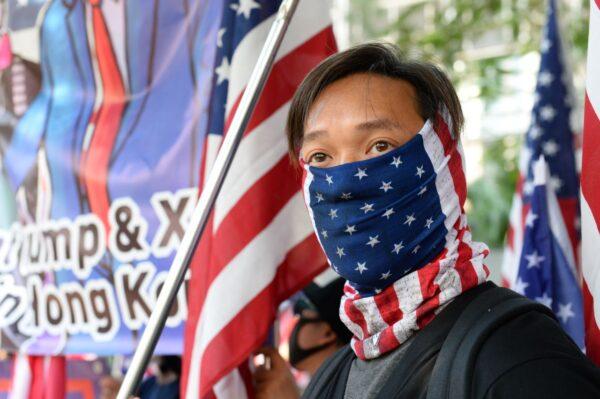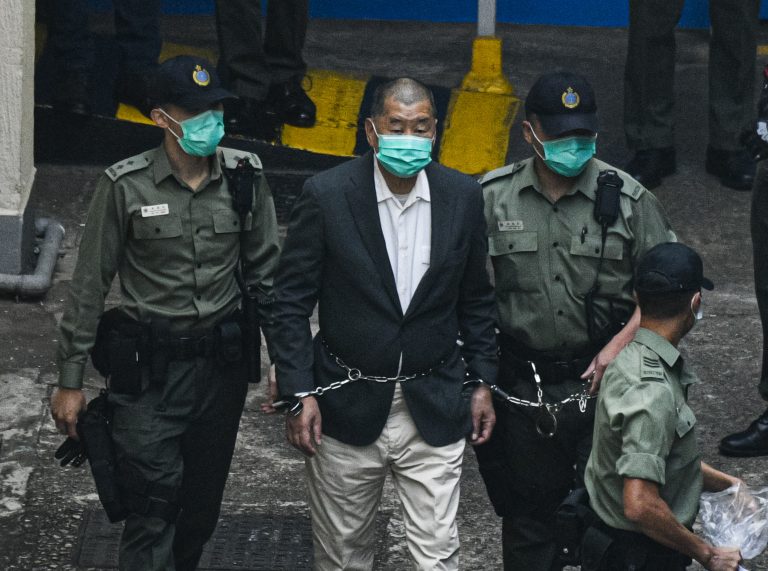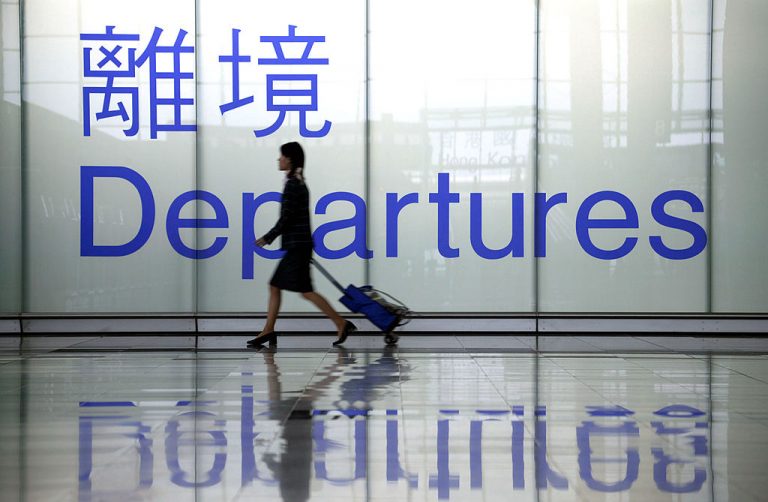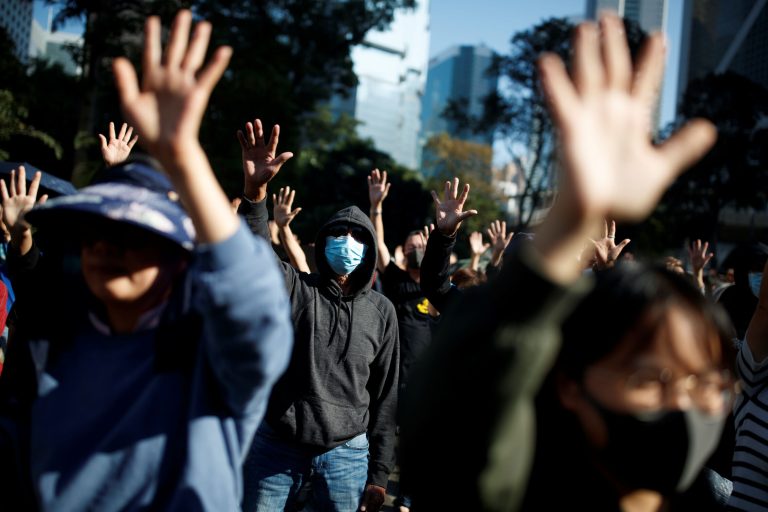Thousands of people waved American flags and lights in Hong Kong’s business district on the evening of November 28 as a mass expression of gratitude to the U.S. government following the passage of two bills the previous day. The event organizers had arranged the rally to coincide with Thanksgiving as celebrated in the United States, so as to thank U.S. President Trump and Congress for their support.
On the evening of November 27, Trump signed the Hong Kong Human Rights and Democracy Act of 2019 and the Protect Hong Kong Act into law, following their near-unanimous passage by both houses of Congress in the previous weeks. The first bill requires the U.S. Department of State to conduct an annual review of whether Hong Kong remains “sufficiently autonomous” to warrant its special economic treatment by the United States. The second piece of legislation bans the sale of U.S.-supplied riot control equipment to the territory.
Hong Kong has been the site of intense protests since this spring when a now-canceled extradition bill sparked fear and anger across the former British colony. In 1984, the communist Chinese leadership made promises to respect Hong Kong’s British-style rule of law until 2047, but has instead worked to undermine these institutions since the 1997 handover. It is because of Hong Kong’s high degree of autonomy in accordance with the one country, two systems framework that the United States and other countries afford the port city different treatment in terms of trade, financial policy, visas, and so on.

Protesters raise their hands to signal their five demands in a march in Tsim Sha Tsui, Hong Kong. (Image: Gorden Yu / The Epoch Times)
The rallygoers cheered with particular enthusiasm when speakers mentioned that the Human Rights and Democracy Act would open up the possibility of Washington imposing sanctions on Hong Kong and Chinese officials found to have committed human rights abuses against the protesters.
A great morale boost
Trump’s decision to sign the bills came days after a landslide victory for the Hong Kong pro-democratic coalition in the city’s district council elections. In a stunning show of popular sentiment, 80 percent of seats went to the pan-democracy camp over pro-Beijing candidates. The November 24 elections saw 2.94 million people, or 71.2 percent of eligible Hong Kong voters, participate.
Success
You are now signed up for our newsletter
Success
Check your email to complete sign up
Chinese state media had reported heavily on the elections up to the day they were held, encouraging Hongkongers to vote. But following the results, the Chinese Communist Party (CCP)-controlled mouthpieces were conspicuously silent. Reuters reported that the Party leadership had set up a crisis center across the border from Hong Kong to deal with the setback and that Chinese leader Xi Jinping could even be planning to sack the Chinese government’s Hong Kong liaison chief, Wang Zhimin.
Joshua Wong, a prominent figure from the 2014 Umbrella Movement, spoke at the Thanksgiving rally, saying that the election results proved that “we [pro-democracy] are the majority.” Wong said that he had tried to convince U.S. lawmakers to pass pro-democracy legislation to support Hong Kong in 2014, but there was insufficient interest at the time. He believes that the greater participation by Hongkongers in this year’s protests — over 2 million people may have marched in one rally in June — raised the awareness needed for the passage of the two new bills.

Protesters hold up a banner and U.S. flags at a rally at Charter Garden in Hong Kong. (Image: Sun Pi-lung / The Epoch Times)
The Thanksgiving rally was followed up a few days later with a Never Forget Why You Started protest that gathered 380,000 people in Tsim Sha Tsui, a neighborhood in Kowloon, which is north of Hong Kong Island. At the peaceful march, protesters shouted slogans such as “heaven will end the Communist Party” and “disband the police force,” reflecting Hongkongers’ frustration with the violent acts of Hong Kong police officers in suppressing protesters, as well as the CCP’s attempts to fold their city into the mainland’s authoritarian state.
The march was organized by a netizen using the nickname Swing; however, though the march was granted official approval, police soon arrived in force to interrupt the event. In later remarks to the press, Swing gave his estimate of the protest numbers, as well as saying that he had received a call from the police around 4 p.m. telling him to call off the demonstration.
Officers fired pepper spray and tear gas, and arrested at least two people, before raising a blue flag to declare the assembly illegal. As the police dispersed, the crowd condemned the police, saying: “The United States will sanction you.” The Hong Kong authorities claimed in a press release that the police had fired tear gas only after having bricks thrown at them by protesters.

Joshua Wong, a prominent figure from the 2014 Umbrella Movement, spoke at the Thanksgiving rally. (Image: wikimedia / CC0 1.0)
A protester called John said that the two U.S. bills were a great morale boost for the people of Hong Kong. “After a few months of this unrest, finally we get some progress. Without this, maybe we are not as motivated. We want democracy. We are standing with the same value [as the United States]. We get more hope to stand against China,” John added.
Another protester named Toby said that the Chinese Communist Party “has been suppressing and repressing our freedom and democracy. We just want freedom and five demands. That’s all we are asking for,” referring to protesters’ demands, including universal suffrage and an independent inquiry into police violence during the protests.
To date, nearly 6,000 people have been detained in the Hong Kong unrest, with some strongly suspected to have been murdered or raped in custody. Police have fired some 10,000 rounds of tear gas in the confrontations.
Follow us on Twitter or subscribe to our newsletter







